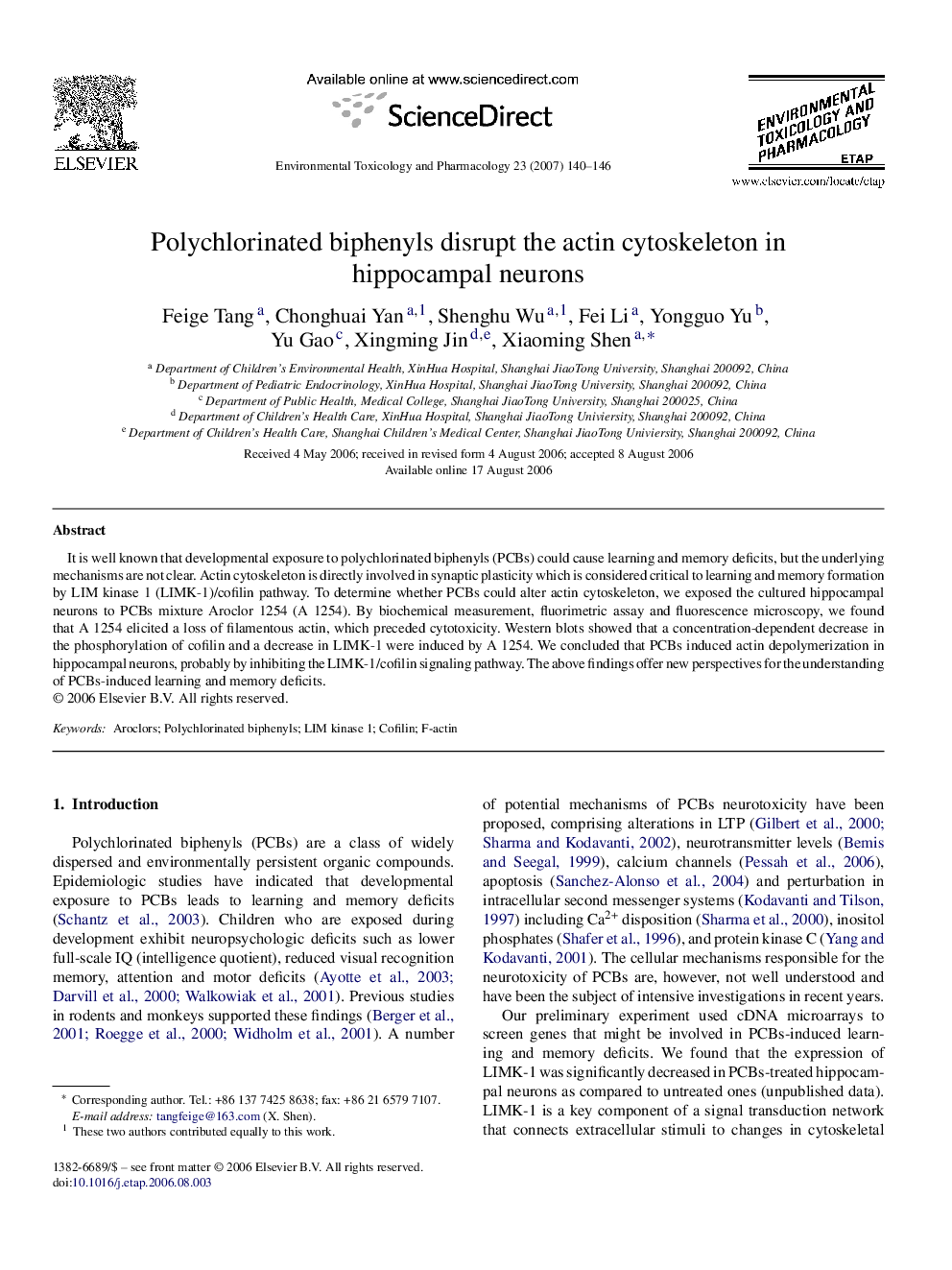| Article ID | Journal | Published Year | Pages | File Type |
|---|---|---|---|---|
| 2584563 | Environmental Toxicology and Pharmacology | 2007 | 7 Pages |
It is well known that developmental exposure to polychlorinated biphenyls (PCBs) could cause learning and memory deficits, but the underlying mechanisms are not clear. Actin cytoskeleton is directly involved in synaptic plasticity which is considered critical to learning and memory formation by LIM kinase 1 (LIMK-1)/cofilin pathway. To determine whether PCBs could alter actin cytoskeleton, we exposed the cultured hippocampal neurons to PCBs mixture Aroclor 1254 (A 1254). By biochemical measurement, fluorimetric assay and fluorescence microscopy, we found that A 1254 elicited a loss of filamentous actin, which preceded cytotoxicity. Western blots showed that a concentration-dependent decrease in the phosphorylation of cofilin and a decrease in LIMK-1 were induced by A 1254. We concluded that PCBs induced actin depolymerization in hippocampal neurons, probably by inhibiting the LIMK-1/cofilin signaling pathway. The above findings offer new perspectives for the understanding of PCBs-induced learning and memory deficits.
